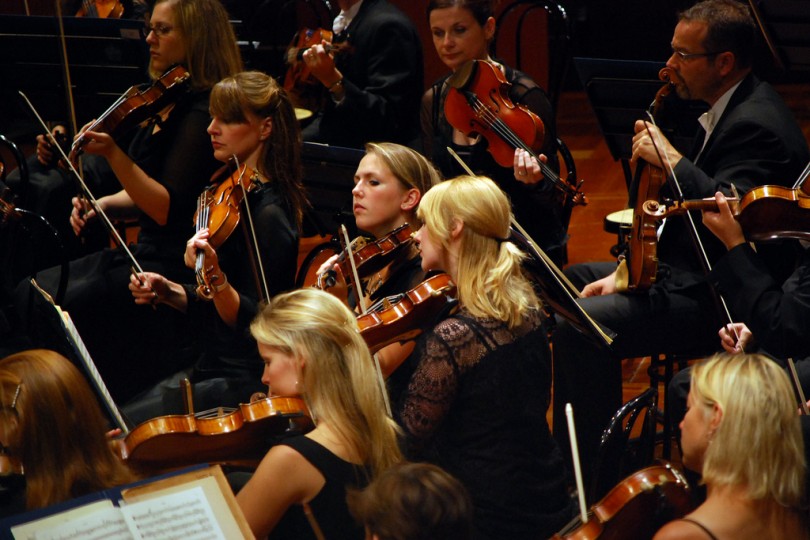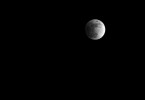If, while you were abroad on holiday or on work, someone invited you to join them at a western classical music concert, chances are that you may not even think twice before gracefully turning down the invitation. You may not like western classical music or may not completely understand the hullaballoo surrounding it, but the fact remains that the beauty and depth of western classical music is one of those rare pleasures you must not miss in your life. Without even realizing it, we enjoy the resonating melodies of western classical music in contemporary TV and cinema. But there is nothing that can compare to the pure, unadulterated splendor of original classical compositions.
The history and evolution of western classical music can intrigue the most disinterested of listeners and may well be a beginning point for the uninitiated. There are four major periods of western classical music, each with its own distinct style and character.
Baroque Period
This is mostly considered as the post-Renaissance period of classical music which continued till the middle of the 18th century. The highlights of this period were elaborate musical ornamentation, changes in musical notation, development of new instrumental playing techniques as well as the establishment of opera as a musical genre.Prominent composers and compositions that could acquaint you with the Baroque period are:
* Antonio Vivaldi’s “Four Seasons”
* Handel’s “Messiah” and “Water Music Suites”
* Bach’s “Passion According to St. Mathew” and “Brandenburg Concertos”
While Bach and Handel were the two most important baroque-era composers and Vivaldi was also way up there, the other well-known composers of era include Arcangelo Corelli, François Couperin, Denis Gaultier, Jean-Baptiste Lully, Claudio Monteverdi, Johann Pachelbel, Henry Purcell, Jean-Phillipe Rameau, Alessandro Scarlatti, Domenico Scarlatti and Georg Philipp Telemann.
Classical Period
The Classical period is considered the ‘golden age’ of western classical music. This period was signified by exact executions with composers providing pitch, speed, meter and individual rhythms to performers, leaving no room for improvisation. Prominent composers and compositions of the Classical period are:
* ‘Don Giovanni’ and ‘The Magic Flute’ – operas by Mozart
* Beethoven’s ‘Third Symphony’, ‘Fifth Symphony’, ‘Seventh Symphony’ and ‘Ninth Symphony’
* Haydn’s ‘94th Symphony (Surprise)’
For the beginner, Haydn, Beethoven and Mozart are the three essential composers. Listening to their repertoire would give you a great understanding of music from the Classical period. The other important composers of the era include Carl Friedrich Abel, Philipp Emanuel Bach, Luigi Boccherini, Muzio Clementi, Christoph Willibald Gluck, François Joseph Gossec, Johann Stamitz, Antonio Soler and Antonio Salieri. The last named composer featured in the brilliant movie – Amadeus – that dealt with the envy (and hatred) that consumed Salieri vis-à-vis Mozart. My modest interest in western classical music owes a lot to this 1984 movie.
Romantic Period
After the precision of the Classical period came the Romantic period of western classical music which drew inspiration from other art forms like sculpting, painting and literature. All through the 19th century, romantic classical music was favored in both Europe and the U.S with a majority of the compositions based on themes of romantic love. However, post World War I, it lost popularity and composers reverted to the edgier classical music or evolved into more modern forms of composition. Prominent composers and compositions of the Romantic period are:
* Hector Berlioz’s ‘Symphonie Fantastique’
* Richard Wagner’s opera ‘Tristan and Isolde’
* Brahms’ ‘Piano Trio No.1’
* Tchaikovsky’s ‘Piano Concerto No.1’
* Frederic Chopin’s ‘Études’
* Verdi’s opera ‘La Traviata’
Some of the other famous composers of this era include Franz Schubert, Robert Schumann, Franz Liszt, Antonin Drovák and Felix Mendelssohn.
Modern Era – Following the Romantic period of classical music came the Modern era; this era saw a lot of experimentation and dissonance from the pre-established rules of classical genres. Modernist classical music began emerging in the beginning of the 20th century and continues till the present day. This period is associated with a neoclassic style and supports emotional distance from the compositions. Composers have tried to gain greater control over compositions, explored electronic music, tape loops and repetitive textures giving rise to minimalism. The Modern era was also the most prolific as far as western classical music is concerned. Prominent composers and compositions of the Modern period are:
* Igor Stravinsky’s ballets “The Rite of Spring”, “Firebird”, “Petrushka”, “Orpheus”
* Claude Debussy’s “Preludes for Piano”
* Arnold Schoenberg’s ‘The Solo Piano Music and Piano Concerto”
* Ravel’s ballet “Daphnis and Chloe”
* Aaron Copland’s ‘Piano Variations’, ‘Piano Sonata’ and ‘Piano Fantasy’
* Gustav Mahler’s ‘Symphony No.4’
Modern era composers are too numerous to name individually but some of the great ones (apart from the ones listed above) include Béla Bartók, Benjamin Britten, Leos Janacek , Sergei Prokofiev, Sergei Rachmaninoff and Richard Strauss.
All through these periods that defined the face and feel of western classical music, six distinct types or idioms of classical music emerged. Some of these types are still seen in contemporary music while others have achieved a novel status and are not as commonly played as others. The six types of western classical music can thus be described as –
1. Symphonic Orchestral Music – We all recognize this form of music from Disney’s ‘Silly Symphonies’ or a trip to Broadway. During the 18th century, thanks to royal patronage, musicians started assembling and performing in larger groups with a plethora of instruments. Haydn, considered to be the father of the symphony, was the first one to explore limitless possibilities with instruments like the violin, flute, horn, clarinets, trumpets, drums, etc. Sometimes a single instrument is given preference by composer and is performed in solo, which is called ‘concerto’. On other occasions, a ‘cadenza’ or improvisation is done in the orchestra adding flavor to the whole composition.
2. Instrumental Music – Classical compositions for one or two instruments is called instrumental music. Violin and Piano are the most preferred in this genre and composers have created masterpieces over the year with these two instruments separately or in cohesion. Chopin, Debussy, Franck and Schumann were some of the prominent names associated with this style.
3. Chamber Music – Music composed for more than two instruments is called Chamber music and its most popular contemporary form is the Quartet. A Quartet is always composed for two Violins, one Viola and one Cello. Some of the outstanding compositions still reminisced for their superior music quality are 16 Quartets of Beethoven.
4. Church Music – Church music gained prominence even before the 18th century and is still heard in religious settings. It incorporated choral singing as well as orchestra. Bach’s ‘Mathew Passion’, ‘Requiem’ by Mozart and ‘Messiah’ by Handel are some of the many important compositions attributed to this style.
5. Operas – After the Baroque period, Opera was also recognized as an independent genre and as a musical idiom it gained prominence in Italy. It can be considered as drama set to music and usually the person writing the Libretto (text) for an Opera works in collaboration with the composer to produce music for the opera. Prominent composers associated with the opera are Mozart, Verdi, Puccini, Strauss and Wagner.
6. Songs – This is one style of music that is widely adapted into contemporary culture and even though it is hard to relate its classical form with the modern one, the contention and idiom remains the same. The composer amalgamates music and lyrics while composing a song, thereby interpreting the text with his music. In the 18th and 19th centuries, composers created songs by composing music for famous poems. Later on, however, songs were written by the likes of Schubert, Mendelssohn, Schumann, Hugo Wolf and Faure.
Even though Pop, Rock or Electronic music sound much more pleasing to most of us, the sweet tones of western classical music can be heard hidden in these contemporary genres as well. One doesn’t need to pay exorbitantly for Opera tickets to enjoy classical music; it is freely available on the internet. So, download some great compositions and get lost in the magic of western classical music.
Visual Courtesy:http://www.flickr.com/photos/mitosettembremusica/







